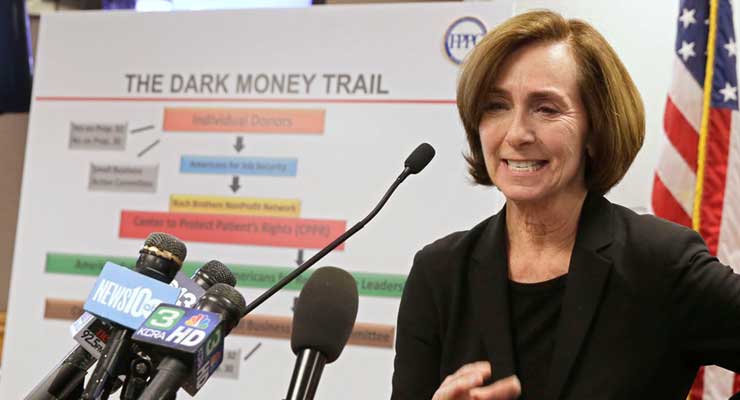
Federal Election Commission commissioner Ann Ravel is a Modern-Day Cassandra. Is anyone listening?
By Ciara Torres-Spelliscy in a recent Brennan Center article:
“Beware of Greeks bearing gifts,” Cassandra said of the Trojan horse that sacked Troy. In Greek mythology, Cassandra also warned of the kidnapping of her sister Helen by Paris, the ensuing Trojan War and the fall of Troy. No one believed her prophesies. They all came true.
We have our own modern Cassandras in the form of two brilliant lawyers. In the 1990s, during Bill Clinton’s presidency, the derivatives market was taking off and Brooksley Born was chair of the Commodities Futures Trading Commission. She warned that unregulated derivatives trading posed a risk to the nation’s financial stability. She wanted more transparency of this dark market.
But Born was undercut in her efforts by no less than Treasury Secretary Robert Rubin, Federal Reserve Chairman Alan Greenspan, Deputy Secretary of the Treasury Larry Summers and SEC Chair Arthur Levitt. This boys club turned out to be dead wrong. But they had the power. They convinced Congress to strip the CFTC of its power to regulate derivatives.
The rest is history. Unregulated derivatives were at the heart of the 2008 financial collapse which brought the economy to its knees. As Prof. Jennifer Taub notes, derivatives magnified the risk in the housing market to such a level that it felled financial giants like Bear Stearns and Lehman Brothers.
For a theatrical take on the history of the unchecked derivatives market, check out the movie “The Big Short.” For a more sober look at this history, see Frontline’s “The Warning.” With hindsight, it’s easy to see that America should have listened to Brooksley Born. And it took fortitude for her to stand alone during the booming economy of 1990s and say that everything was not well. She richly deserved the JFK Profiles in Courage Award she received in 2009.
In today’s Washington, Ann Ravel could be a modern-day Cassandra. She is currently a commissioner at the Federal Election Commission (FEC), the agency in charge of campaign finance in federal elections. Through a longstanding federal law the FEC also has jurisdiction over keeping foreign money out of all American elections—including state and local contests.
Ravel has been trying to get the FEC to take this responsibility seriously. Last year she tried to get the agency to address a violation by a European pornographer (not an exaggeration), who spent $327,000 in a Los Angeles ballot fight. The FEC did nothing.
Revelations by Jon Schwarz and Lee Fang in The Intercept showed that a company called APIC (American Pacific International Capital, Inc.), which was really owned by two Chinese nationals, dumped $1.3 million into the Right to Rise super PAC, which backed Jeb Bush’s doomed run for the Republican nomination. In the wake of this news, Ravel called for a ban on contributions from U.S. subsidiaries of foreign corporations. FEC is set to hold a hearing on Ravel’s proposal Sept. 15.
Ravel is right to worry about the possible impact of foreign money on U.S. elections. As it is, $650 million has in already been poured into elections since 2010 whose origins are unknown and some could be from overseas.
But like Born’s admonitions, Ravel’s warnings may fall on deaf ears. They shouldn’t. Born was right then; and Ravel is right now. The FEC should take this threat seriously and adopt Ravel’s sensible proposal because corporate structures are the Trojan horses of our time.
Leave a Reply